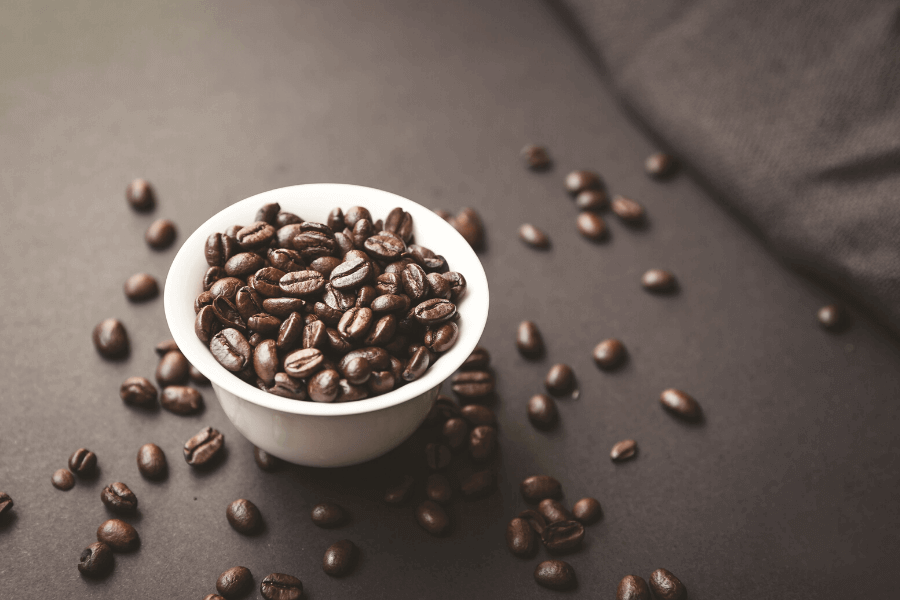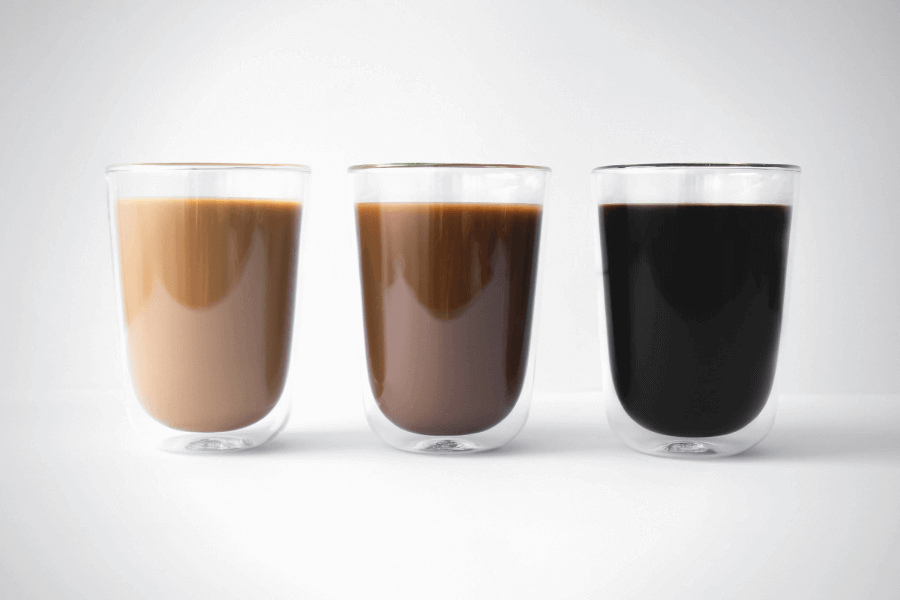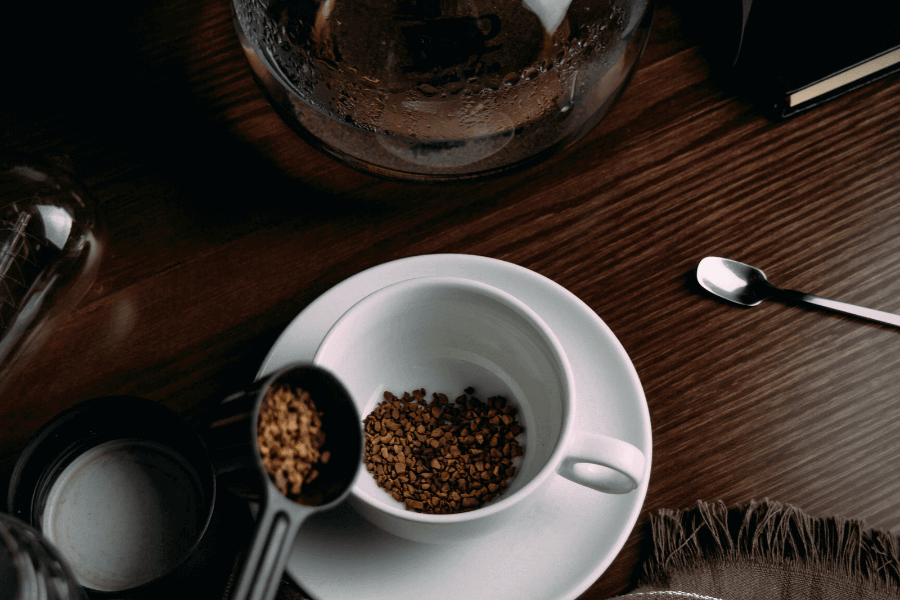Be A Home Barista: How To Make Perfect Coffee At Home
Coffee is an art. Though it’s mostly a matter of taste, preference and style, there are standards that separate excellent coffee from second-fiddle joe. It’s also something that, with practice, anyone can master.
If the java you make at home is disappointing, no matter how hard you try, you may be missing a few tricks of the trade. This guide will show you how to make perfect coffee at home, according to your needs, resources and preferences. Here’s what we’ll cover:
What Makes a Good Cup of Coffee?
Fact: Your coffee preferences have come under fire at least once because someone else thinks that “you don’t know what real coffee is.” No one enjoys being the target of snobbery, but for the sake of this article, we must ask: how much of the haughtiness is valid?
The simple answer is that coffee beans are wee little babies that will deteriorate if you even look at them the wrong way, and this detracts from the quality of your joe, resulting in a subpar experience. Much like how a microwave meal will serve its purpose, but will never be the same as mama’s home cooking.
So, what makes an objectively good cup of coffee, then?
Quality
Coffee grading is a complex topic, as there is no universal criteria for evaluating coffee beans. That said, the various grading methods that are in place judge a harvest’s characteristics by:
- Bean size, type, density, shape and color
- The region, altitude, and conditions in which beans were grown
- How the beans were processed
- The number of defects in a batch
Once beans are lab tested, the profile of the coffee also comes into play. Then, it’s up to brands to rate their own product, usually by roast, which determines a coffee’s strength.
By the way, we have two posts you can check out if you’d like to learn more about how coffee is produced, and what we mean by strength.
It stands to reason that coffee quality can be dictated by the integrity and flavor of the beans you’re brewing. Superior quality coffee is grown in optimal conditions, harvested from healthy plants, carefully processed, and contains little to no imperfections. These conditions hone a coffee’s profile so that it tastes better, regardless of personal preference.

Brewing Ratios
Have you ever made an ordinary cup of coffee and it tastes amazing, but when you go for a refill it’s disappointing? You’ve done nothing differently. The first cup just happened to be liquid gold and the other, for some reason, tasted like dirt. Win some, lose some, right?
Not quite. Precision makes all the difference when making coffee at home, so, if you rely on guesswork, you’ll likely end up with mediocre joe.
According to the Specialty Coffee Association of America (SCAA), the golden ratio for brewing is 55 grams of coffee per liter of water or 1:18. The SCAA also recommends water is heated to 200 degrees Farenheit for optimal brewing, and a steeping time of 1 to 4 minutes for fine grounds, 4 to 6 minutes for drip coffee, and 6 to 8 minutes for coarse grounds.
Brewers agree that the golden ratio is tried and tested, however, you’re at liberty to adjust these numbers to suit your needs — so long as your measurements remain consistent. This way, you’ll brew a winning cup every time.
Freshness
Coffee may not truly expire, but once it’s roasted, it immediately starts deteriorating. When roasted beans are exposed to the air, they begin to oxidize, which destroys their flavor over time. Even worse news is that grinding accelerates this process.
Those who enjoy instant coffee don’t have this problem. It can last for 20 years, whether or not you’ve broken the seal. Still, it’s wise to enjoy it within the best before date, for optimal flavor.
While expired coffee won’t make you sick, there’s a noticeable difference in quality. It’s harder to make great coffee at home with “bad” grounds. To get the best flavor possible, keep it fresh, and more importantly, only grind beans when you’re making coffee.
A summary: Good coffee may be a matter of personal preference, but there’s no denying that fresh, high-quality coffee brewed to the golden ratio or your own consistent formula produces superior java.
Craft Versus Technology: Should You Use a Coffee Maker?
Honestly, there’s no right answer to this question because it entirely depends on the experience you want. Some people are adamant that hand-brewed coffee always trumps machine-made coffee on the grounds of authenticity and character. Those in favor of coffee machines say it’s more precise, easier, and efficient.
Even though it’s a toss up, there’s one interesting fact to take into account.
The Texas Coffee School found that, according to consumers, machines make better coffee. This was confirmed on three separate occasions between 2012 and 2013 when machines were pitted against craft coffee pros. When it came to blind tasting, all three machines came out on top.
This is not to say you should abandon your craft brewing ambitions. If you’re passionate about making coffee at home by hand, don’t let anyone stop you. However, if you’re looking for the best way to make perfect coffee at home, a machine is your best bet.
If you’d like to invest in a coffee maker but have no idea where to start, check out our list of the best coffee makers in 2021. There’s something for everyone — even craft brewers!
Milk and Sugar to Taste?
Unfortunately not. There’s no solid evidence that milk and sugar actively change a coffee’s base flavor profile — although, your perception of it is altered. If you’d like to experience a coffee’s natural flavor, it’s best to drink it as is.
Ultimately though, when it comes to making great coffee at home, enjoy your coffee to taste. There’s no reason you shouldn’t.
Even when discussing health, it can go either way. Unsweetened black coffee is better if you’re watching your weight or sugar intake. However, adding milk is much better if you struggle with acidity.

How To Make Good Coffee at Home: Tips and Tricks
Beyond your beans’ quality, your preferred ratio, and your brewing method, there are some factors that are up to you. The following tips will improve both your brewing experience and the final product.
Explore Coffee Profiles
We all love coffee but we’re not married to it, so feel free to experiment with different beans, blends, or brands until you find one you love. The labels and descriptions of the coffee available to you will make a lot more sense if you learn the basics of flavor profiles as well.
Choose Quality Over Quantity
Even if you’re working on a budget, some coffees are made to a higher standard than others — these are the ones you should buy.
Invest In the Tools of the Trade
A quality kitchen scale, coffee grinder, and thermometer can make a world of difference to your coffee, especially if you are craft brewing. But it doesn’t have to end there. Many baristas prefer stirrers to spoons for mixing and tampers for measuring. And there are a ton of other accessories available, such as milk frothers.
Use Purified Water
Tap water contains impurities that can detract from your coffee’s profile. Wherever possible, use filtered water. It’s better for your body and will enhance the quality of your brew. It’s a simple change but you’ll taste the difference.
Ceramic Is the Way
You’re not imagining it. Coffee doesn’t taste as good when served in paper, glass, or metal cups. Because ceramic is a neutral material, it won’t react to the heat or chemical composition of your joe.
Change Your Filters
If you’re using disposable filters, change them frequently or as the manufacturer recommends. Filters collect grit over time and become less effective. If they’re left for too long, you may be polluting your coffee with leftovers.
Or purchase a stainless steel filter. You won’t get that gross paper taste, they’re easy to clean, and the most durable option.
Use Clean Equipment
We’re all guilty of refilling our mugs without cleaning them, but the extra effort is worth it. Not only does washing your coffee mug and spoons reduce the presence of bacteria, but it will prevent old flavors from polluting your fresh brew.
Additionally, make an effort to maintain your machines, pots, and carafes properly. They’ll last longer and brew better joe.
Take Care of Your Beans
If you buy whole beans, storing them correctly preserves the quality for as long as possible. The National Coffee Association recommends keeping beans at room temperature, in an opaque, airtight container. Don’t buy more than you use in a week as they may go bad before you get to them, regardless of your storage system.
Buy Ethically Sourced Beans
The coffee industry is mired in controversies. Environmental conservation is a huge concern, as is the exploitation of plantation workers. Buying eco-friendly and ethical coffee won’t change its flavor profile, but it has to be said: Coffee tastes so much better when guilt isn’t an additive.
Check out our list of the best organic coffee beans:

Three Home Brewing Don’ts
Don’t Over-Brew to Make Coffee Stronger. It seems counterintuitive, but steeping your joe well beyond what’s recommended won’t intensify its caffeine content. In fact, doing so releases unhealthy chemicals that your palate won’t appreciate. One exception is cold brewing, but even so, it shouldn’t steep for longer than 24 hours. In line with this, when using a French press (or any immersion brewer), decant your coffee when it’s ready. Otherwise, the beans will continue to stew and ultimately taint your brew with extra bitterness.
Reheating Coffee Is a Terrible Idea. If you’d like to ruin a perfectly good cup of coffee, stick it in a microwave. In layman’s terms, bitterness is heat activated. With the first brew, it’s softened by sweet, or even fruitier tones. But the more you heat coffee, the more its composition is addled with astringent tones taking precedence. Make a fresh cup.
How To Make Different Types of Coffee At Home
You’ve figured out your own personal golden ratio, learned how to select the best beans, and broken bad habits that ruin your coffee experience. But what if you want to make a specific type of coffee, surely different steps apply to different brews?
This is true, but that information is so specific that if I covered it all, I could publish this article as a book! Instead, take a look at our how-to section for advice and brewing guides that match your needs.
But I won’t leave you high and dry, here’s square one:
| If You’re Looking For… | Then… |
| Espresso | Start by checking out our picks of the best home espresso brewers and also our guide on how to use one. |
| Convenience | Invest in a programmable or automatic coffee maker. Portable coffee makers are excellent for those on the go as well. |
| Easy Hand Brewing | A French press is your best bet! Take a look at our recommendations, then learn the best way to make French press coffee. |
| A Stovetop Brewer | We have a great selection of moka pots for you to browse. |
| Craft Coffee | Our favourite cold brewers will change your life. |
| Standard Filter Coffee | Drip coffee makers are old but gold! |
| Variety | Pod coffee makers will make exploring different flavor profiles a breeze. |
Conclusion
To learn how to make perfect coffee at home, start by figuring out what perfect means to you. This could be the golden ratio set by the SCAA or your own formula. Once the numbers work for you, the most important thing is consistency.
Investing in simple equipment will enhance your home brewing experience. If all else fails, machines are arguably more efficient than humans.
And finally, ignore what the snobs say. Make your coffee as you like it. At the end of the day, enjoying the bean is the point of home brewing.
Want to help others learn how to make great coffee? Don’t forget to share this article!
How To Make Coffee at Home FAQs
Can You Make Coffee at Home Without a Machine?
Yes you can, and there are various methods, depending on how you define “machine.” You could consider a variety of manual brewers, like a French press, cold brewer, or moka pot. If you don’t have a brewer at all, we have a guide that shows you how to brew without a coffee maker.
Can I Make Milk Froth at Home?
Absolutely! A milk frother is the best option, but if that’s out of your budget, frothing without tools is possible. Add milk to a sealable jar and shake vigorously for approximately 30 seconds. This will disturb the milk and create foam.
Is Making Coffee at Home Cheaper?
Generally speaking, yes, but it really depends on the type of coffee you want to make. Instant coffee goes a long way and has the highest value for money, while an espresso maker is an investment that costs more at first, but will save you a truckload compared to daily cafe expenses.





